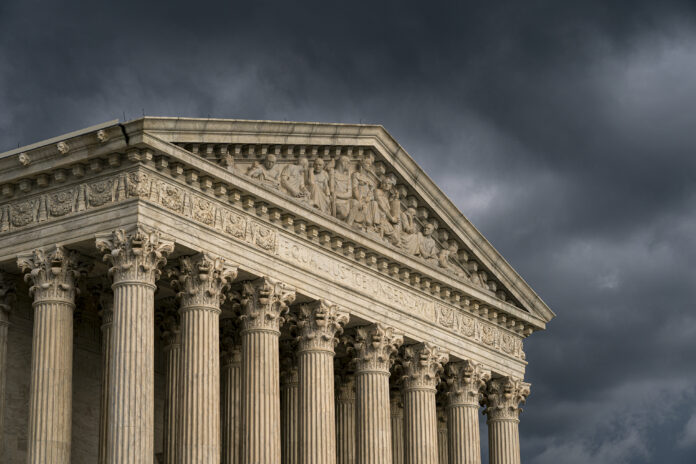
CRANSTON – The U.S. Supreme Court rejected police arguments Monday and ruled in favor of a Cranston man whose two lawfully owned firearms were seized from his home without a warrant or his consent following a wellness check conducted by Cranston police officers, American Civil Liberties Union of Rhode Island Inc. announced Monday.
The court rejected police arguments that engaging in a noncriminal “community caretaking” function allows them to search a person’s home without a warrant.
Justice Clarence Thomas delivered the opinion for the unanimous court.
The ACLU of Rhode Island filed a “friend of the court brief” arguing that approval of such activities could lead to giving ”police free rein to enter the home without probable cause or a warrant, whenever they think it is ‘reasonable’ to do so.”
In 2015, Edward Caniglia, the petitioner in the case, had guns seized form his home after a wellness check from police. The officers at his home called an ambulance on the belief that Caniglia posed a risk to himself and others. Caniglia agreed to go to the hospital for a psychiatric evaluation on the condition that the officers did not confiscate his firearms, but once he left, the officers located and seized the weapons. Later, when Caniglia tried to retrieve his weapons, he was told by the police that it was department policy not to return weapons confiscated for safekeeping without a court order, the ACLU said.
Caniglia later sued, arguing that the search for and seizure of his weapons violated his Fourth Amendment right, which protects against unreasonable search and seizures.
A federal district court had previously found that the department’s policy of refusing to return the firearms was unconstitutional but upheld the warrantless search and seizure of the weapons on the grounds that police were engaged in a “community caretaking” function that did not require a warrant. A federal court of appeals upheld that decision.
The Supreme Court decided Monday that the “community caretaking” exception to the Fourth Amendment’s warrant requirement does not apply to the warrantless search of a person’s home.
The ACLU said that the exception arose in Supreme Court jurisprudence specifically involving the searches of cars impounded by the police.
“Today’s court decision is an extremely important victory for privacy rights. The Fourth Amendment has always served as an important barrier to police intrusion into the home, and we are very pleased that the Court reaffirmed this fundamental principle,” said ACLU of Rhode Island Executive Director Steven Brown in a statement.












